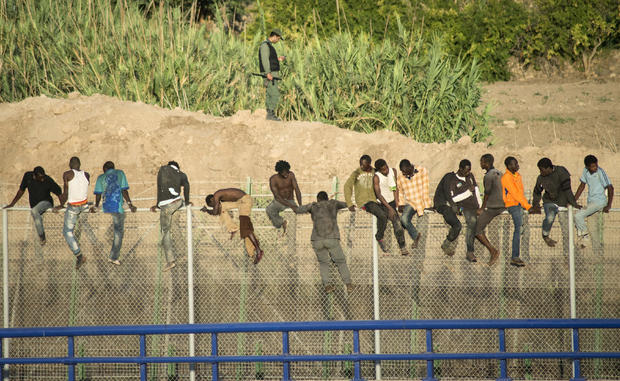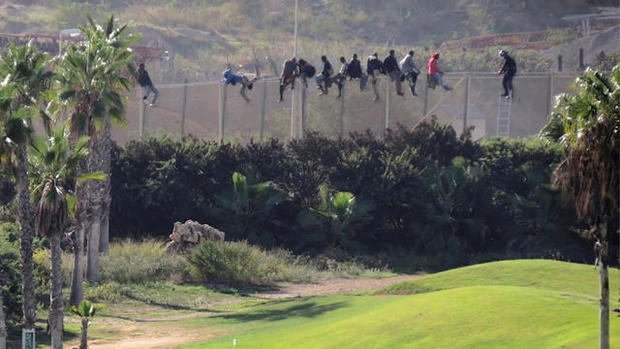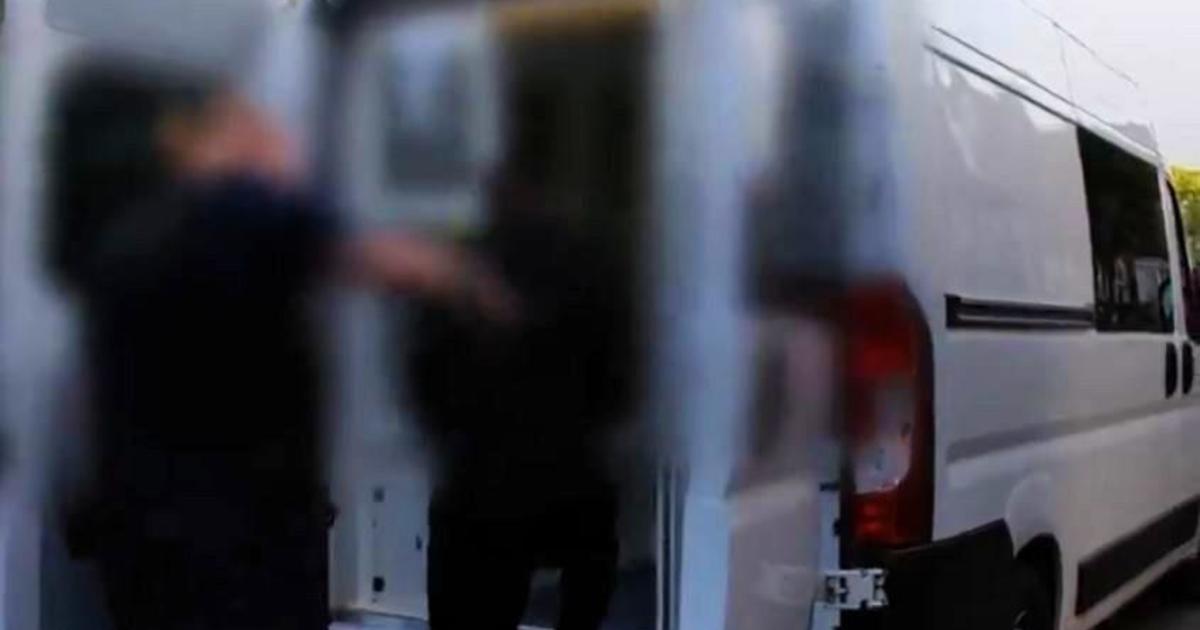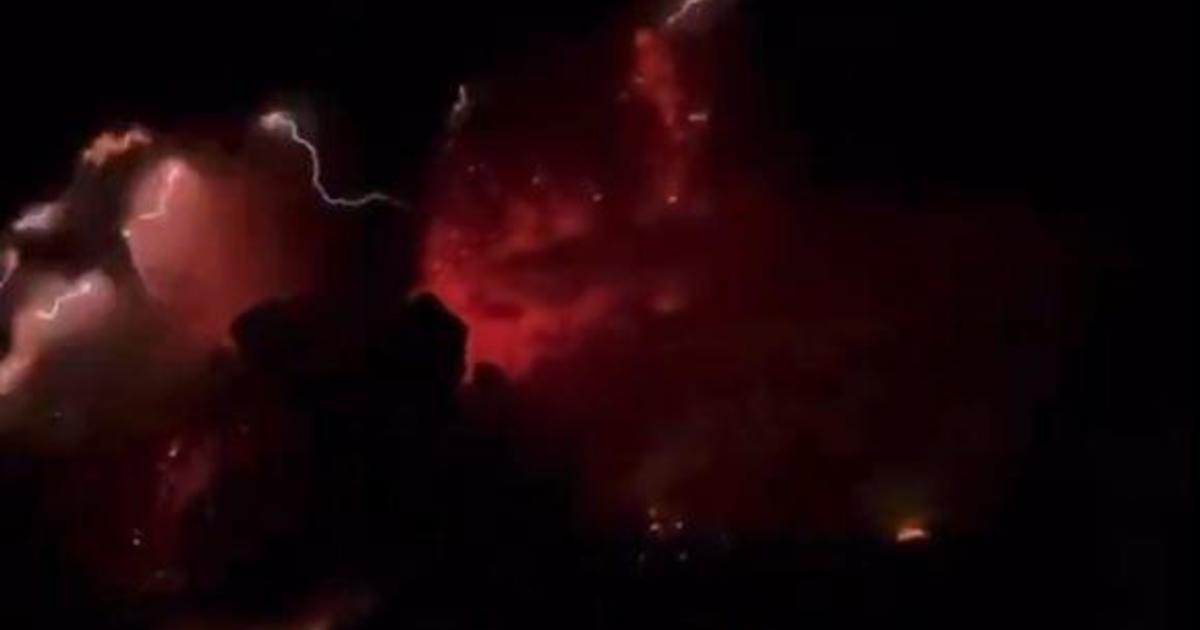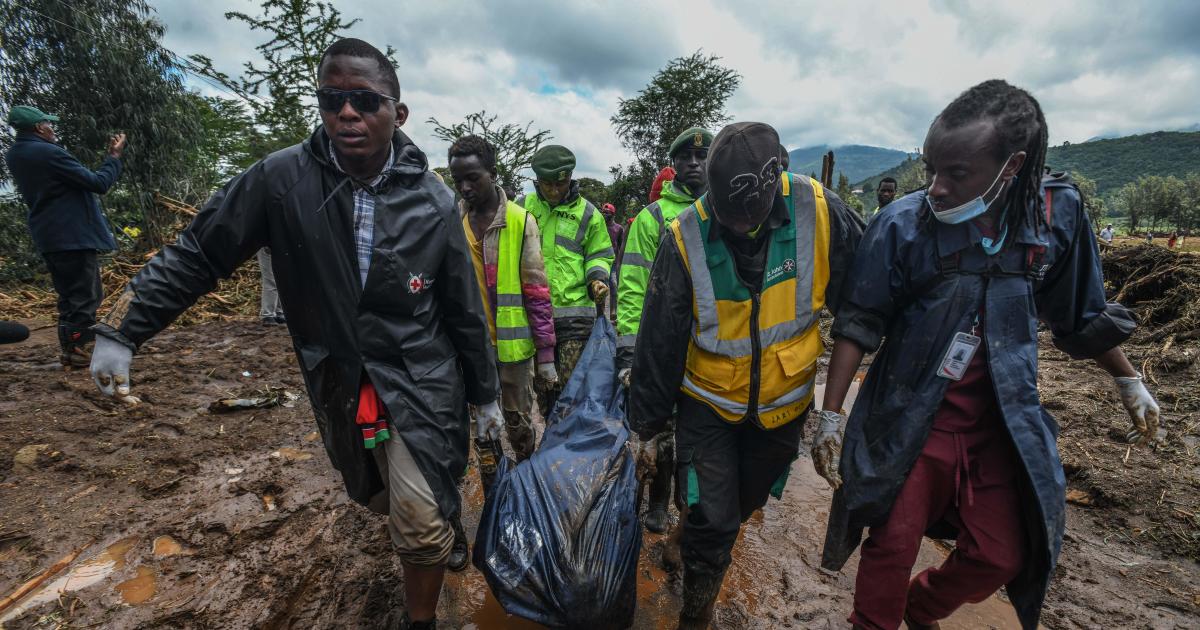Fortified Morocco-Spain border fence is under pressure from African migrants
You may not think of Africa and the European Union as sharing a land border. But that's the case at Melilla and Ceuta -- two tiny Spanish enclaves whose borders have increasingly come under pressure from African migrants willing to risk their lives for a better life in Europe.
The enclaves, which are part of Spain and share borders with Morocco, sit 250 miles apart on the continent of Africa, on the northern shores of the Mediterranean coast.
Melilla's border fence is made up of three separate fences and it traces the entire border with Morocco -- running about seven miles long. It has been fortified in recent years, made much higher and harder to climb, Seth Doane reported for "Down to Earth" by CBS News on Facebook Watch.
There are also motion sensors, spotlights and cameras up and down the perimeter, including high-tech cameras that track body heat. Moving dots represent lines of migrants traversing the Moroccan forest, waiting for the right time to cross.
Tighter controls have pushed smugglers to be more inventive. At border checkpoints, officers check every car, searching for stowaways with an electronic device that detects a heartbeat to determine if someone is hiding inside. Boys have been sewn into hollowed-out mattresses and others have been wedged into the tightest places, including dashboards, waiting hours to get through a line of cars.
Migrants who make it through can apply for asylum.
Spain was the top gateway to Europe for migrants last year with 56,914 arrivals -- more than double the 26,707 arrivals the year before. Morocco claims that in the first nine months of 2018 it stopped 68,000 crossing attempts by illegal migrants.
Khayri Hereddine, a Palestinian who fled from Gaza, said he snuck across the border. He doesn't imagine how his future will be, "but I'm sure it's better," he said.
"I'm just looking for respect. R-E-S-P-E-C-T, that's it," he said. "Respect me as a human and I will do all my best to be a good human."
Hereddine said he wasn't stopped when he crossed the Melilla border. But he has met others at a migrant center who weren't so lucky.
"They arrive here with broken legs, hands" -- injuries sustained while attempting to scale the fences, he said. We also heard stories of bribery and beatings in the quest to make it to Europe.
Carolos Montero runs a reception center on the Spanish side of the Melilla border. The center was built for about 700 migrants and was holding roughly double that number on the day CBS News visited. Montero said it's complicated keeping up with the need. "The burden is big," he said.
There have been reports about severe overcrowding, but CBS News was shown far more livable -- though packed -- sleeping quarters. Bunkbeds have been built so more people can fit.
CBS News also saw a school and a storage room filled with new clothes, part of the $25 million the European Union has given Spain to help with migrants.
Jose Palazon snapped a photo that went viral four years ago. It showed migrants straddling two worlds as they scaled a border fence from Morocco while golfers in Spain played on an elite course in the foreground.
"The people who don't support them say they come to invade us – that they want to steal, take our jobs and take advantage of our health system, " Palazon said. "But they just want to work and send money back to their families."
Skandar Elatay of Tunisia, who wants to get to his girlfriend in Paris, said it is very difficult to jump the fence, so he swam to Melilla.
The Guardia Civil, the Spanish law enforcement agency in charge of controlling the borders, also patrols the sea. Officers will stop and check out sport boats that may be smuggling migrants.
"We see the difference between the third world and the industrialized world," First Officer Jose Ferron said. "You see a country with (little) hope -- they don't have food or a future and -- separated by a very thin line -- a world like Europe that has future … democracy, and liberty."
